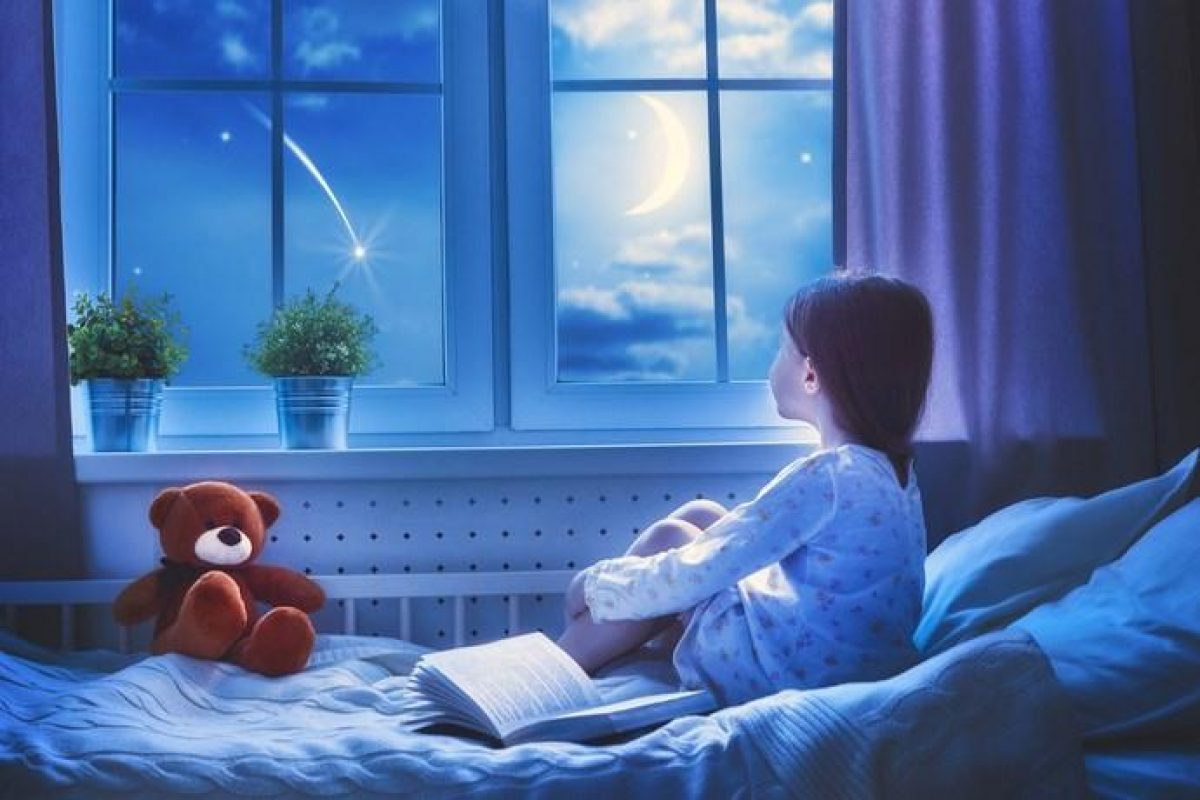How to Help Kids Afraid of the Dark

We all go through it—that sense that there are things in the dark that we can’t see, and that maybe some of them are coming to get us. Whether it’s in early childhood or later adulthood, at some point the dark just feels disconcerting.
Just like sleepwalking, fear of dark can be scary for parents, but it’s perfectly normal.
Let’s Allay Your Fears First.
If your child is afraid of the dark, it can be hard to know how to help. First, know that the fear of the dark is a natural part of childhood development. The fear strikes some children more than others, but at some point every child is fearful.
Family therapist Jenn Berman told WebMD that the fear of dark can first develop around the age of 2 or 3, as kids’ imaginations also develop. Babies don’t have a sense that things are still there when they can’t see them, and older kids have learned object constancy—that what’s there when you turn off the light is still there in the dark, and that new things don’t appear when you turn off the light.
How to Help Kids Who Are Afraid
Here are a few things you can do to help a young child through their fears, and “what not to do” in the process:
- Show them. Walk your child around the bedroom. Look under the bed or in the closet, wherever the “monsters” lurk. DON’T pretend to look for monsters, because this can give the child the sense that you think they may actually be there. Show her whatever items are making strange shapes in the dark. Stress familiarity—clothes, shoes, toys—things that make her feel safe in her own space.
- Empower them. Some parents use a bag of “pixie dust” (confetti) or a “monster zapper” (flashlight) to help their children feel a sense of control. DON’T turn on a bright hall light or bathroom light to help them, since the extra light can interrupt their natural brain chemistry and make it harder to fall asleep/stay asleep. A dim night light is okay.
- Encourage them. Kids need to know their parents have confidence in them. A healthy fear of the dark should run its course naturally in a few weeks. DON’T belittle them—though the monsters aren’t real, the fear is, and he needs to know he has your support. Tell him you know it’s frightening but with a little time you can both get through it, so he can learn to sleep on his own in a darkened room like a big boy.
- Comfort them. Offer a favorite teddy bear or other comfort item. Children sometimes need that “safety net” to help increase their comfort level. DON’T allow a child to regress during this fearful time—if you put away the pacifier six months ago, don’t pull it out now to help her sleep. Choose a favorite bear to be her “protector,” or bring home a brand new toy to be “monster guard.”
When to Worry About Your Child’s Fear of Dark
Normally, a fear of the dark is no cause for concern. If your child shows serious levels of fear that keep her from sleeping in her own room, especially after several weeks or months of patient help from you, it may be time to seek the help of a therapist.


